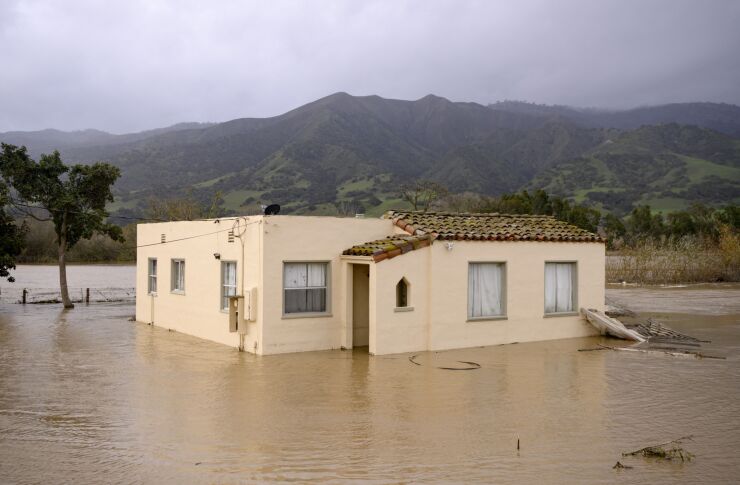Financial institutions are increasingly
Governments and Wall Street are eager for more granular, up-to-date information on the risks they face. But
Madison Condon is an associate professor of law at Boston University and teaches both corporate environmental law and climate risks to financial institutions. In a preprint of a
This interview has been condensed and edited for clarity.
Why are these private climate predictions concerning?
People throw the term "climate models" around pretty loosely without understanding that that term means a lot of different things. The big, huge projects that take supercomputers, and years to build, and many teams of scientists — they're very good at predicting, for example, average global temperature. They are less good at predicting very local, extreme changes. That doesn't mean that we should disregard them, but we should be aware of their limitations.
We have a lot more certainty around temperature rise, even regionally, than we do about hurricanes.
One of the biggest parts of uncertainty in climate models is what humans are going to do about emissions. That's not a resolvable uncertainty. It's okay that we don't know that but we should also plan for the future, knowing that it could [happen] in various ways.
Wildfire is an example of [a] type of
Are there rules of thumb specifically for some of the more complex hazards?
It seems to me the thing that matters the most about wildfire risk has to do with the decisions that governments make between now and then, or the decisions that insurance companies make between now and then.
It's not particularly useful if you're a real-estate investor to buy a flood score that says you have zero flood risk here, if you don't also look into: Does the municipality get most of its municipal bond financing from houses that are going to be flooded? Will it affect your home, or will the road leading to your home be flooded?
The thing that is frustrating about this whole moment is that there's all these things that we do know about, really, with a lot of certainty. We don't necessarily know how climate change will change the likelihood of a reoccurrence of Sandy hitting New York City, but we do know that a lot of places are
Does anybody in the private sector have a decent head start on thinking about this stuff?
For a while, the only people who were thinking particularly hard, outside of academia, about how to apply climate science to different problems were pretty much
[But] the people who are responsible for making sure that mortgages are priced correctly are not the insurance world. It's the banking world, and the mortgage-oversight world at the federal level. They don't necessarily know what they're doing when they apply the outputs of global climate models to problems in the same way that, say, insurers have been.
"We don't have a regulatory apparatus at the state or federal level really making sure that those scores have any meaning at all. So that's a problem."That's not to say that all insurance companies are doing an amazing job of understanding climate. Insurers really only are tasked with correctly pricing risk over a one-year horizon for their business model. [But] insurers are trying to incorporate climate science and uncertainty into their models.
It's very vague, what is going on in all the other different parts of the financial sector. And that's the biggest problem.
How do potentially fuzzy climate predictions hit closer to home?
If you're trying to sell your house, whoever is trying to buy your house will be told what your climate risks are. That can have effects on your property values. Because it's so new, we don't have a regulatory apparatus at the state or federal level really making sure that those scores have any meaning at all. So that's a problem.
You flag a solution at the end of your paper: a federal service for public climate science and information. Is that in the cards?
I found it so fascinating, the very long history of people asking for a national climate service, starting in the late '70s. People weren't even totally committed to the idea that it was humans that were responsible for warming. But they were pretty sure that something weird was going on with the climate and we should be able to predict it better. So, even back in the day, it was a bipartisan states' rights issue. They wanted more localized information, and less big science research on these big atmospheric models. And that dream sort of, you know, keeps getting invigorated from time to time.
To contact the author of this story:
Eric Roston in New York at






